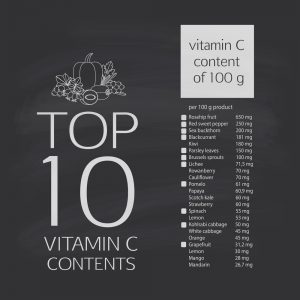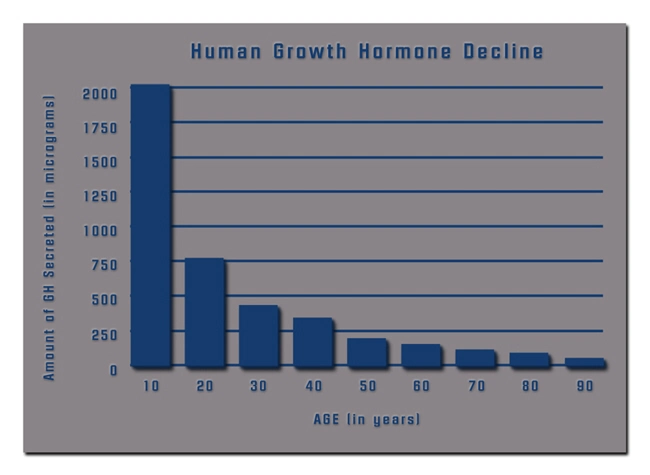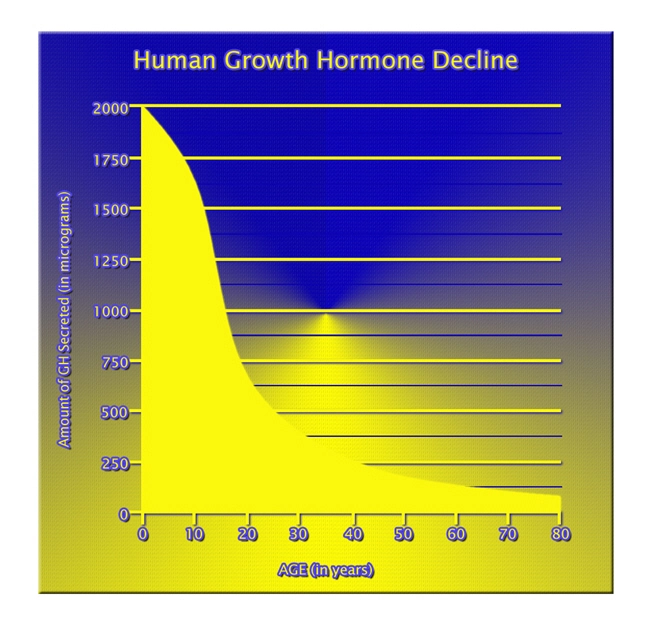
Video Link: https://vimeo.com/285989362
Video Download: Click Here To Download Video
Video Stream: Click Here To Stream Video
Video Link: https://vimeo.com/285990692
Video Download: Click Here To Download Video
Video Stream: Click Here To Stream Video
Video Link: https://vimeo.com/307135168
Video Download: Click Here To Download Video
Video Stream: Click Here To Stream Video
What You Need to Know About Vitamin C
In one of his earliest explorations across the Atlantic Ocean, Christopher Columbus noticed that many of his sailors appeared sick...very sick. They were lethargic, with aching limbs and debilitating fatigue.
These symptoms were so pronounced that Columbus was ready to have the sick men walk the plank when a lush, verdant island suddenly appeared.
 The sick people begged to be let out on the dry land, and Columbus agreed.
The sick people begged to be let out on the dry land, and Columbus agreed.
Once there, the sailors devoured strange fruits and plants, and a miracle unfolded: they began to heal from whatever affliction had caused their symptoms.
Months later, on the way home to Europe, Columbus sailed by the island and watched in shock as the bearded white men greeted the ship.
The same group that was dying months earlier had recovered completely.
To commemorate the event, the island was named Curacao, which in Portuguese means “for the cure.”
Eventually, the connection was made between the lack of specific foods and a disease called scurvy, the same illness that the stranded men on the island were stricken with.
Further study revealed that vitamin C was the missing link that could prevent this devastating health problem.
Today we know more about vitamin C -- much more. It is an absolute requirement for the human body to function, and without it, you die, period. Here are some of the benefits of this fantastic vitamin: Vitamin C...
Plays a huge role in collagen production, which promotes healthy skin.
Strengthens the immune system so that resistance to disease is improved. Vitamin C is needed to protect the brain and spinal cord, to manufacture neurotransmitters, and for lipid and carbohydrate metabolism.
Helps fight off the symptoms of the common cold.
- Acts as a powerful antioxidant. Apples turn brown when cut open as a result of the oxidation process. The same process attacks our cells by vehicles known as free radicals. Vitamin C offers protection from this damage since it can lose an electron to a free radical and remain stable. This process affects the ability of the free radical to inflict damage to our cells.
May act as a fat-fighting weapon. One study showed that inactive men and women who started taking 500 mg of vitamin C daily experienced an average of a 13-pound weight loss.
- As little as 2,000 mg of vitamin C per day increases the effectiveness of a particular type of white blood cells known as neutrophils. These cells locate and annihilate disease-carrying germs and even attack free-floating cancer cells.
Another study claims that “divided high doses” of oral vitamin C can raise the concentration of vitamin C in the blood to levels that have been shown to lower the risk of death from cancer by 57%.
If you're a smoker, there's good news and bad news. The bad news? You're still smoking. The good news? High amounts of vitamin C in your blood can offer some protection from lung problems that so often result from smoking.
Improves mood. Vitamin C has also been shown to have a mood-boosting effect. In a study of hospital patients who quite often are deficient in Vitamin C, the results were precise: Vitamin C supplements improved their mood. This makes logical sense when we consider that one of the symptoms of scurvy is depression.
- Is beneficial to athletes. Many athletes who run marathons and engage in other forms of extreme, strenuous exercise are more prone to developing infections than those who exercise less intensely. Studies find that 50-1,000 mg of Vitamin C taken daily for several days before any exhaustive physical activity may reduce infections by as much as 80%. Also, Vitamin C has helped to reduce the length and intensity of delayed-onset muscle soreness (DOMS). This may be because damage to connective tissues surrounding muscles has been observed in those with DOMS. Because vitamin C is known to produce connective tissue, this vitamin may help reduce DOMS.
- Can lessen the risk of stroke and heart attack. As you age, you become more susceptible to abnormal blood clots in your arteries. Normal blood clotting is necessary for your survival since without any clotting you would bleed to death from a simple scratch. But if you have a build-up of plaque in your arteries like so many older people, pieces of plaque can break free and cause abnormal clots. This can lead to heart attacks and strokes. The best indicator of excessive blood clotting is a substance called fibrinogen. In reasonable amounts, fibrinogen helps blood clots form. However, too much of it raises your risk of heart attack and stroke. Vitamin C is one of the most efficient ways to keep your level of fibrinogen below the danger zone.
How to Ensure You're Getting Enough Vitamin C
As with most vitamins and minerals, it all begins with what you eat. When we think of vitamin C, most people think of oranges and other citrus fruits. This is undoubtedly a step in the right direction. But many are unaware that bell peppers, broccoli, and Brussels sprouts contain more vitamin C than oranges. And papaya is the undisputed king, packing a wallop of more than twice the amount of vitamin C than oranges.
Also, don't forget about other excellent sources of vitamin C: strawberries, pineapple, cantaloupe, chili peppers, red peppers, green peppers, cherries, spinach,  and cauliflower. Just remember that cooking can destroy a lot of this all-important nutrient. Therefore, strive to eat them fresh, or at least steamed.
and cauliflower. Just remember that cooking can destroy a lot of this all-important nutrient. Therefore, strive to eat them fresh, or at least steamed.
However, we can't always rely on our food. Processing takes a toll on Vitamin C, as well as the earlier mentioned cooking.
Also, due to soil depletion and drugged livestock, our food is far less nutritious than a mere 50 years ago. In fact, much of our food is nutritionally worthless.
Our Paleolithic ancestors were for the most part free of the crippling diseases that we all-too-often suffer from today. But they ate food that grew in soils that were much richer in vitamins, minerals, and nutrients than today's earth.
This is in large part due to the enormous agricultural companies (Big Agra) mad quest for profits, which has resulted in overuse of the soil and genetic engineering of our food...at the cost of the nutritional quality of just about everything we eat...including our vitamin C intake.
Want proof? Check out these numbers:
According to a 2005 report from the U.S. Department of Agriculture (USDA), 31% of Americans have an inadequate intake of vitamin C.
Another study found that our vegetables have, on average, lost about 20% of their vitamin C content.
- According to The Bottom Line's Daily Health News, a century ago the odds of dying from heart disease were 1 in 24. Now they have skyrocketed to 1 in 7.
The same study also looked at cancer, and the results were depressingly similar. A century ago, the odds of dying from cancer were 1 in 49. Now they have jumped up to 1 in 7...identical to heart disease.
Therefore, there is a need for vitamin C supplements. The next question is: “What is the right dosage?” Good question.
For starters, most researchers who have seriously studied this issue agree that the National Institute of Health's (NIH) Recommended Daily Allowance (RDA) of 90 mg per adult male and 75 mg for adult females is pathetically inadequate.
Remember that humans cannot synthesize vitamin C. Other mammals like guinea pigs, chimpanzees, and apes have this same lack of ability, and routinely take in 20 to 40 times the amount of Vitamin C daily when adjusted for body weight.
 Keeping this in mind, the Vitamin C Foundation gives a general recommendation of 1,000 to 4,000 mg per day. If you are healthy, the lower end of the spectrum may be okay.
Keeping this in mind, the Vitamin C Foundation gives a general recommendation of 1,000 to 4,000 mg per day. If you are healthy, the lower end of the spectrum may be okay.
On the other hand, if you are suffering from a severe disease, you might consider exceeding these guidelines.
If you experience an upset stomach or acid reflux after taking vitamin C as ascorbic acid, the buffered form (Mineral ascorbates, Ester C) will work just fine.
Otherwise, the more common ascorbic acid form will work.
How much is too much? Your body will let you know. Vitamin C is water-soluble. As opposed to fat-soluble vitamins, any excess vitamin C will be flushed out through urine.
Also, vitamin C is not toxic. If you overdo it, the result will be digestive problems (diarrhea, nausea, vomiting), headache, or fatigue. These symptoms, while uncomfortable, are usually not dangerous, and will cease when the dosage of vitamin C is reduced.
No discussion of vitamin C would be complete without acknowledging the contributions of the Nobel Prize-winning scientist Linus Pauling. Pauling believed firmly in high daily doses of vitamin C, and he didn't just advocate it for others; he practiced what he preached, and lived to the ripe old age of 93.
Pauling persevered in his strong advocacy of vitamin C, in spite of the bitter, acrimonious, and at times personal attacks and ridicule that he was subjected to by the medical establishment.
Pauling was a strong proponent of vitamin C for the treatment of cancer, heart disease, infection, prevention of the common cold, disease prevention, and anti-aging.
In fact, Pauling publicized the work of Frederick Robert Klenner, M.D. Dr. Klenner was an early advocate of intravenous vitamin C as a treatment for cancer and as an antibiotic.
Sadly, the medical establishment fought Pauling tooth and claw, and his name today is still controversial, which says volumes about his influence. They conducted several studies that allegedly proved that intravenous vitamin C therapy was useless.
The fact that the doses of vitamin C used in these “independent studies” were too small to be useful was ignored, as was the effect of what the inexpensive vitamin C treatment would have on the physician's income.
 The medical establishment has long been reluctant is rock the boat with alternative approaches, and it shows with their sanctimonious dismissal of vitamin C.
The medical establishment has long been reluctant is rock the boat with alternative approaches, and it shows with their sanctimonious dismissal of vitamin C.
If no current medical books or studies have described vitamin C as a cure for any disease, most physicians will not even discuss it.
Also, physicians are not as well-versed in the science of nutrition as many believe they are.
However, the effectiveness of antibiotics has diminished, due to decades of over-reliance on them. As a result, several new and horrifying “superbugs” have emerged that are resistant to just about every standard antibiotic available.
We may be entering into a new and frightening post-antibiotic age, where even the traditional medical establishment will be forced to take another look at intravenous vitamin C as an antibiotic. Time will tell if Pauling's ideas will be vindicated.
Reference
15 Amazing Vitamin C (Ascorbic Acid) Benefits
Contact Us Today For A Free Consultation
Dear Patient,
Once you have completing the above contact form, for security purposes and confirmation, please confirm your information by calling us.
Please call now: 1-800-380-5339.
Welcoming You To Our Clinic, Professor Tom Henderson.

- The Facts About the Sunshine Vitamin — Vitamin D Benefits [Last Updated On: August 1st, 2024] [Originally Added On: June 2nd, 2020]
- What You Need To Know About Vitamin E [Last Updated On: January 15th, 2025] [Originally Added On: March 6th, 2021]
- Vitamin D3: The Miracle Vitamin That is so Much More Than a Vitamin [Last Updated On: January 12th, 2025] [Originally Added On: March 11th, 2021]
- Leafy Greens are Medicine for Your Gut [Last Updated On: August 27th, 2024] [Originally Added On: April 23rd, 2021]
- All Praise to the Spud -- the Delicious, Health-Giving Potato, That Is [Last Updated On: July 11th, 2024] [Originally Added On: June 1st, 2021]
- Benefits Of Pyrroloquinoline Qinnone [Last Updated On: October 30th, 2024] [Originally Added On: June 7th, 2021]
- Testosterone and Vitamin B6 [Last Updated On: January 12th, 2025] [Originally Added On: October 25th, 2021]
- Growth Hormone, Testosterone, and Nutritional Supplements [Last Updated On: January 15th, 2025] [Originally Added On: October 25th, 2021]
- Testosterone and Astaxanthin: The Surprising Link [Last Updated On: January 13th, 2025] [Originally Added On: October 25th, 2021]
- Growth Hormone, Testosterone, and Nutritional Supplements. [Last Updated On: January 11th, 2025] [Originally Added On: October 25th, 2021]
- Testosterone and Vitamin B 12 [Last Updated On: January 13th, 2025] [Originally Added On: October 25th, 2021]









